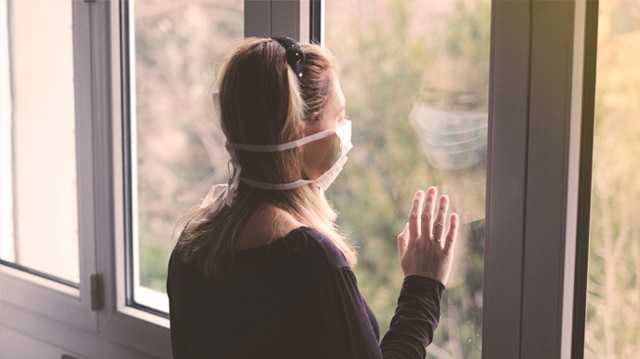When someone thinks about sexual assault, they often imagine a scene in which a stranger sexually assaults woman in an alley late at night. Although these acts do occur, most sexual assaults are perpetrated by someone the victim knows, including intimate partners, friends, caregivers, or even family members, some of whom live in the same home. With the global spread of the COVID-19 pandemic and the stay-at-home orders to combat it, the risk of sexual assault within a home has increased.
According to the Rape, Abuse & Incest National Network (RAINN), 33 percent of sexual assaults are perpetrated by a current or former intimate partner and, according to the Department of Justice, 34 perfect of child sexual abuse cases reported to police are perpetrated by a family member. However, due to under reporting, the actual incidents of sexual assault by someone in the home is thought to be higher.
According to an article by NPR, when stay-at-home orders began in March, the RAINN hotline had an increase in contact from minors, with the majority reporting sexual abuse by a family member in their home. This is as a result of perpetrators having more access to victims since they are not going to school, work, or other places outside the home. Additionally, financial stress and psychological stress related to a catastrophic event, have been linked to an increased risk of domestic violence as well.
Furthermore, the pandemic has also made it more difficult for victims to get help since perpetrators have more opportunities to check a victim’s computer and phone, making reaching out for help dangerous. In fear of also catching the COVID-19 virus, victims might not go to the police, hospitals, or their local rape treatment center. Children and vulnerable adults are also having little to no contact with those who might suspect and report sexual abuse, such as counselors, doctors, and teachers.
Nevertheless, there is help: police have not stopped responding to calls, domestic violence shelters and rape treatment centers remain open, and hotlines are working whether via a phone or online.
If you are a victim of sexual assault, please know that your experience matters, you are not alone, and there are people ready to help.
If you are in immediate danger, please call 911.
Shara Kaszovitz, LCSW
Below is a list of additional resources and a link to safety planning tips.
- Safety Planning Guide – COVID 19 – Safety Plan
- National Sexual Assault Hotline / RAINN – 1-800-656-HOPE / https://www.rainn.org
- Victim Response Inc. / The Lodge – 305-693-0232
- National Domestic Violence Hotline – 1-800-799-7233 / 1-800-787-3224 TTY / thehotline.org
More online links that can benefit you or a loved one during these tough times.
- Addiction and Domestic Violence | The Connection Between Addiction & Abuse (sunshinebehavioralhealth.com)
- Realize Your Potential: Ready Learning Portal (csod.com)
- Pandora’s Project (pandys.org) -online support group
- MOSAC – Mothers of Sexually Abused Children
- COVID-19 Resources for Children’s Safety | Stop It Now
- Caring for Kids: What Parents Need to Know about Sexual Abuse | National Sexual Violence Resource Center (NSVRC)
- Resources in Spanish – Child Welfare Information Gateway
Please see Kentucky’s law on mandatory reporting when dealing with minors or the elderly/disabled:
- Mandatory Reporting | The Kentucky Coalition Against Domestic Violence (kcadv.org)
- RAINN | Rape, Abuse and Incest National Network
